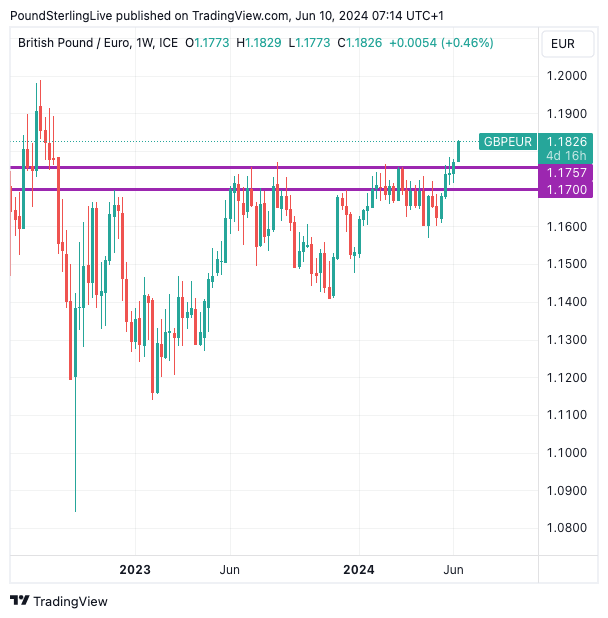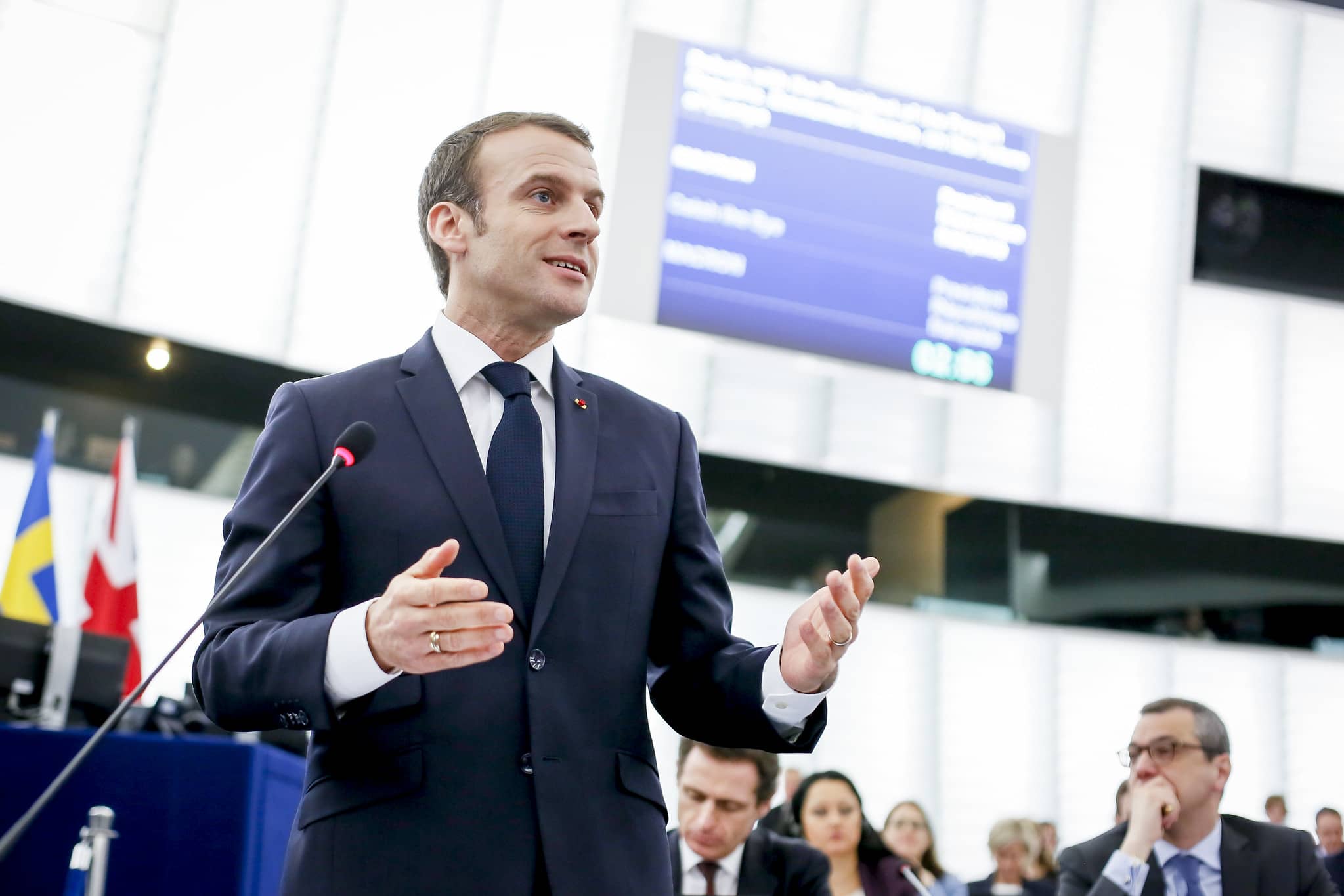Above: Emmanuel MACRON, President of France. Copyright: European Union.
Pound to euro conversions soared in value on Monday, delivering the best exchange rates for euro buyers in 34 months.
The euro is under widespread pressure, with analysts blaming the calling of early elections in France and the apparent success of EU-skeptical parties in the European Parliament elections.
‘Extreme’ right-wing parties performed strongly in this weekend’s EU elections, especially in France and Italy, where National Rally (RN) and Brothers of Italy (FdI) came first. French President Emmanuel Macron responded by dissolving parliament and calling early parliamentary elections, increasing political uncertainty for the bloc.
Roberto Mialich, currency analyst at UniCredit in Milan, said the euro was “forced to retreat” after the European election results prompted French President Macron to call early elections in France.
Ulrich Leuchtmann, head of FX and Commodity Research at Commerzbank and Frankfurt, says the euro’s weakness follows the European Parliament elections, where “Euro-sceptic and anti-European parties have made gains, especially in major EU countries . And there are new elections in France. outcome could complicate policymaking in France.”
“The poor performance of incumbent political parties in France and Germany in last weekend’s European Parliament elections – plus President Macron’s decision to dissolve parliament – is weighing on the common currency,” said Chris Turner, head of FX analysis at ING Bank.
The British pound, meanwhile, is well supported and rising against all its major counterparts except the dollar.

Above: GBP/EUR at weekly intervals. Track GBP/EUR with your own custom rate alerts. Set here
The pound-to-euro exchange rate rose to 1.1824 on Monday, continuing a rally sparked late on Friday by a strong US jobs report that reduced the chances of a US interest rate cut. The development also reduced the chances of UK rate cuts as markets counted on the Bank of England to follow the Fed in delaying the start of a rate cutting cycle.
This increases UK bond yields and the pound.
The price action between GBP and EUR is therefore driven by factors outside Britain. A look at the performance dashboard shows that the pound is a big beneficiary of the revaluation of US interest rate expectations, rising against all G10 countries except the dollar.
The main event for the British pound next week is UK wage pressures, expected on Wednesday: “It’s a big data week for Britain, with April’s labor market and GDP reports. This will be closely watched are held by the MPC,” says Sanjay. Raja, senior economist at Deutsche Bank.
If regular wages exceed expectations of 6.1%, the pound could rise. This indicates that the Bank of England’s Monetary Policy Committee (MPC) will be cautious about raising rates in August as this could increase the risk of a resurgence in domestic inflation.
“The MPC’s focus on private sector wage growth means we will be keeping a close eye on where AWE Regular Pay (including private sector wages) ends up in the all-important month of April (where we spend most of should see wage agreements reset – including the full implementation of the new National Living Wage),” says Raja.
Also keep an eye on the UK GDP print on Thursday, with markets expecting a 0.1% month-on-month increase in April, while the year-on-year yield is 0.7%.
“March saw a big upside surprise for GDP, driven by strong consumer services and healthcare results. We expect some payback in April. Retail sales fell sharply that month,” said Andrew Goodwin, chief U.K. economist at Oxford Economics.
Any undershoot against expectations could result in the pound regaining some of its recent gains.
It is a quiet week in the eurozone, with no major events on the calendar.
